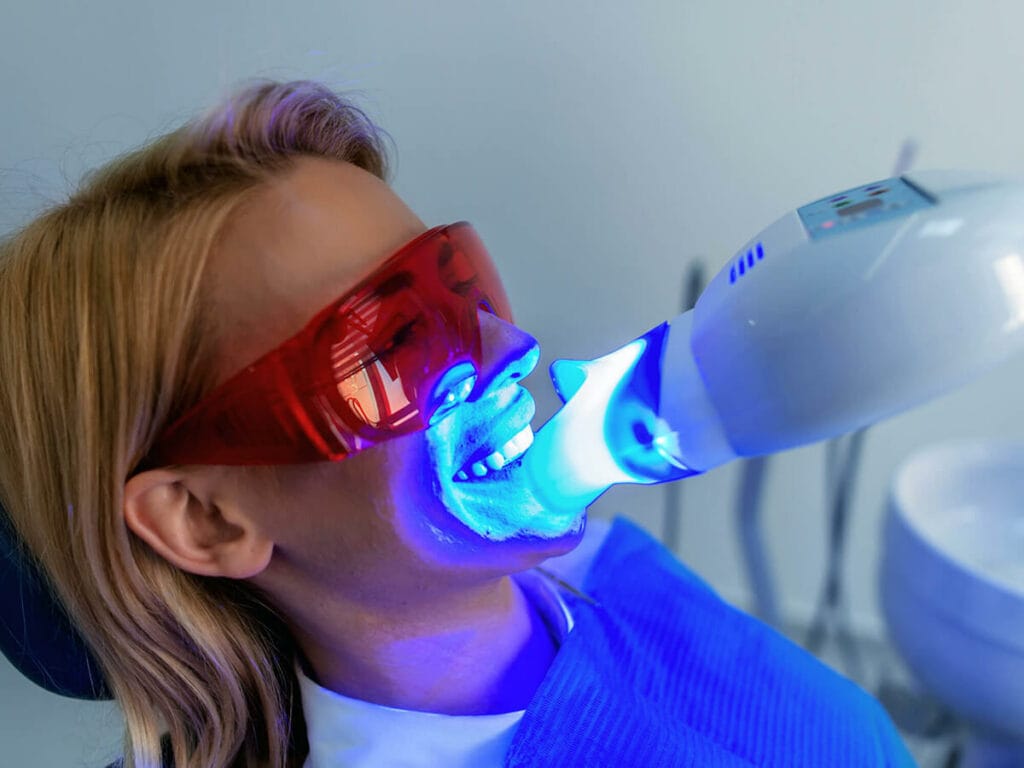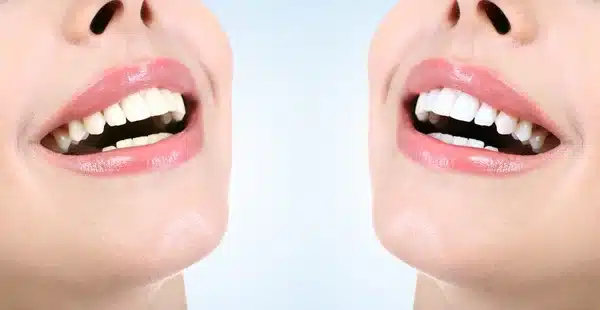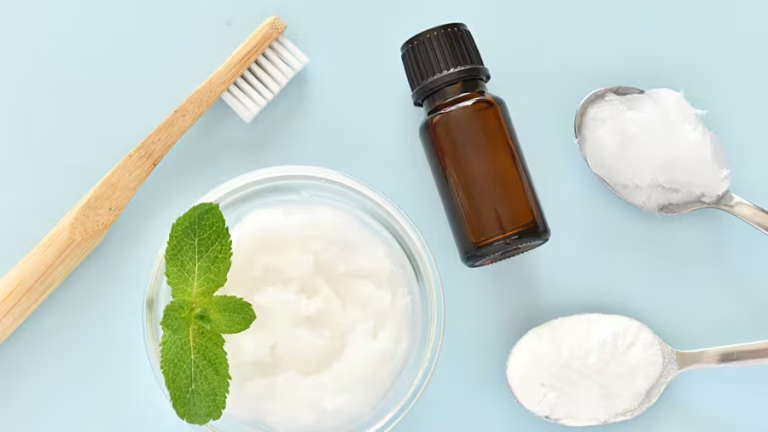Professional Teeth Whitening vs. Over-the-Counter Products: Pros and Cons
Whitening Effectiveness: Professional vs. OTC
When it comes to teeth whitening, not all methods are created equal. If you’ve ever stood in the dental care aisle staring at rows of whitening strips, gels, and toothpaste, wondering if they’ll actually work, you’re not alone. The truth is, there’s a big difference between professional teeth whitening and over-the-counter (OTC) products—and it all comes down to effectiveness.
Professional teeth whitening treatments, whether done in-office or with custom take-home kits from your dentist, pack a serious punch. These treatments use higher concentrations of whitening agents like hydrogen peroxide or carbamide peroxide, which are carefully applied to your teeth under the supervision of a dental professional. The result? A noticeably brighter smile in just one or two sessions. Think of it as the “heavy-duty” option—perfect for tackling stubborn stains from coffee, wine, or years of wear and tear.
On the flip side, OTC products are more like the “slow and steady” approach. Whitening strips, gels, and toothpaste typically contain lower concentrations of whitening agents, which means they’re gentler but also less powerful. While they can help remove surface stains and brighten your smile over time, they often fall short when it comes to deeper discoloration. Plus, because OTC products are designed to fit everyone, they might not work as effectively if your teeth have unique shapes or spacing.
Here’s a quick example to put it into perspective: Imagine you’re trying to clean a stained coffee mug. Professional whitening is like using a high-powered scrubber that gets the job done in minutes, while OTC products are more like soaking the mug overnight—it works, but it takes longer and might not remove every last stain.
So, if you’re looking for dramatic results fast, professional teeth whitening is the way to go. But if you’re okay with a gradual change and want to save a few bucks upfront, OTC products might be worth a try. The question is, how soon do you want to see that brighter smile?
Cost Analysis: Upfront Investment vs. Long-Term Spending
Let’s talk numbers—because when it comes to teeth whitening, your wallet has a say in the decision too. Professional teeth whitening and over-the-counter (OTC) products come with very different price tags, and understanding the costs can help you choose the option that fits your budget without sacrificing your smile goals.
Professional teeth whitening treatments aren’t exactly cheap, but they’re an investment in fast, noticeable results. On average, in-office whitening can cost anywhere from $300 to $1,000, depending on your location and the complexity of the treatment. Take-home kits provided by your dentist are usually more affordable, ranging from $100 to $400. While the upfront cost might make you pause, think of it this way: you’re paying for expertise, safety, and results that can last for months or even years with proper care.
Now, let’s look at OTC products. At first glance, they seem like a steal—whitening strips can cost as little as $20 to $50, and whitening toothpaste might set you back just $5 to $10. But here’s the catch: OTC products often require repeated use to maintain results. If you’re using whitening strips every few months or buying specialized toothpaste regularly, those costs can add up over time. Plus, if you’re not seeing the results you want, you might end up spending more trying different products.
Let’s break it down with a real-life scenario. Say you buy a $30 box of whitening strips every three months. Over a year, that’s $120—and you might still need touch-ups. Compare that to a one-time $400 professional take-home kit that lasts a year or longer. Suddenly, the price gap doesn’t seem so huge, does it?
Of course, your choice depends on your budget and how quickly you want results. Are you looking for a one-time splurge that delivers a dazzling smile, or are you okay with spreading out the cost over time? Either way, it’s worth weighing the long-term value against the upfront expense. After all, a brighter smile is priceless—but it doesn’t have to break the bank.
Safety Considerations: What You Need to Know
When it comes to teeth whitening, safety should always be a top priority. After all, you’re dealing with your smile—something you definitely don’t want to mess up. So, let’s break down the safety differences between professional teeth whitening and over-the-counter (OTC) products, so you can make a choice that’s not only effective but also kind to your teeth and gums.
Professional teeth whitening treatments have a major advantage: they’re supervised by a dental expert. Whether you’re sitting in the dentist’s chair for an in-office treatment or using a custom take-home kit, your dentist ensures the process is tailored to your specific needs. They’ll protect your gums from irritation, monitor the strength of the whitening agents, and make adjustments if you have sensitive teeth or existing dental work (like crowns or veneers). It’s like having a safety net—you can relax knowing your smile is in good hands.
OTC products, on the other hand, are a bit of a DIY adventure. While they’re generally safe when used as directed, there’s always a risk of overdoing it. Have you ever left a whitening strip on too long or applied too much gel? Yeah, that can lead to gum irritation, tooth sensitivity, or even uneven results. And let’s be real—most of us don’t read the fine print on every product we buy. Without professional guidance, it’s easy to make mistakes that could leave your teeth feeling more sensitive than sparkling.
Here’s a quick tip: If you’re considering OTC whitening, start slow. Test a small amount of the product first to see how your teeth and gums react. And if you have a history of sensitivity or dental issues, it’s worth consulting your dentist before diving in. They might recommend a gentler option or steer you toward professional treatments for a safer, more predictable outcome.
At the end of the day, your smile is too important to take risks with. Whether you choose professional whitening or OTC products, make sure you’re putting safety first. After all, what’s the point of a brighter smile if it comes with a side of discomfort?
Longevity of Results: How Long Will Your Smile Stay Bright?
So, you’ve whitened your teeth and achieved that dazzling, camera-ready smile. But here’s the million-dollar question: how long will it last? The longevity of your results can vary significantly depending on whether you go the professional route or opt for over-the-counter (OTC) products. Let’s dive into what you can expect from each option.
Professional teeth whitening treatments are known for their staying power. Thanks to the high concentration of whitening agents and the precision of dental supervision, results from in-office treatments or dentist-provided take-home kits can last anywhere from six months to two years—or even longer with proper care. Of course, this depends on your lifestyle habits. If you’re a coffee lover, red wine enthusiast, or occasional smoker, you might need touch-ups sooner. But for many people, professional whitening is a “set it and forget it” solution that keeps their smile bright for months on end.
OTC products, on the other hand, tend to deliver shorter-lived results. Whitening strips, gels, and toothpaste can help remove surface stains and brighten your smile, but the effects often fade within a few weeks to a couple of months. Why? OTC products use lower concentrations of whitening agents, which means they’re less effective at penetrating deep stains. Plus, since they’re not customized to your teeth, they might not work as evenly or thoroughly as professional treatments.
Let’s put it into perspective with a relatable scenario. Imagine you’re preparing for a big event, like a wedding or a job interview. If you choose professional whitening a month or two beforehand, you can confidently flash your bright smile knowing it’ll last through the event and beyond. But if you rely on OTC products, you might find yourself rushing to reapply strips or gels right before the big day to maintain that sparkle.
The bottom line? If you’re looking for long-lasting results, professional teeth whitening is the clear winner. But if you’re okay with a shorter-term solution and don’t mind a little upkeep, OTC products can still help you achieve a brighter smile—just be prepared to put in a bit more effort to keep it that way.
Convenience and Time Commitment
Let’s face it—life is busy. Between work, family, and everything else on your plate, finding time for teeth whitening might feel like just another item on your never-ending to-do list. That’s why convenience and time commitment are key factors to consider when choosing between professional teeth whitening and over-the-counter (OTC) products. Let’s break it down so you can pick the option that fits your lifestyle.
Professional teeth whitening treatments are all about efficiency. If you opt for an in-office session, you could walk out with a noticeably brighter smile in just one or two visits, each lasting about 60 to 90 minutes. It’s like a spa day for your teeth—you show up, relax, and let the professionals do the work. Even dentist-provided take-home kits are designed for convenience, with custom-fitted trays and clear instructions to help you whiten on your own schedule. Sure, there’s a bit of upfront time investment, but the results are fast and dramatic.
OTC products, on the other hand, are the epitome of convenience—no appointments, no waiting rooms, and no need to leave your house. Whitening strips, gels, and toothpaste can be used whenever it fits into your day, whether that’s during your morning routine or while binge-watching your favorite show. But here’s the trade-off: OTC products often require weeks of consistent use to see noticeable results. If you’re someone who struggles to stick to a routine, this might feel like a hassle.
Think about it this way: professional whitening is like taking a nonstop flight to your destination—quick and direct. OTC products are more like a road trip with multiple stops—it takes longer, but you have more flexibility along the way.
So, what’s your style? Are you looking for a quick, one-and-done solution, or do you prefer the flexibility of whitening on your own time? Either way, there’s an option that can fit into your busy life—it just depends on how soon you want to see that brighter smile.
Conclusion
Choosing between professional teeth whitening and over-the-counter products doesn’t have to be a headache. By weighing the pros and cons of each option—effectiveness, cost, safety, longevity, and convenience—you can make a decision that aligns with your goals, budget, and lifestyle.
Professional whitening offers fast, dramatic results with the added peace of mind of dental supervision, making it ideal for those who want a long-lasting, hassle-free solution. On the other hand, OTC products provide a more affordable and flexible approach, perfect for gradual whitening on your own schedule.
At the end of the day, the best choice depends on what matters most to you. Are you preparing for a special event and need instant results? Or are you looking for a low-maintenance way to brighten your smile over time? Whatever you decide, your dentist is your best resource for personalized advice.
Ready to take the next step toward a brighter, more confident smile? Contact [Your Dental Clinic Name] today to schedule a consultation and explore your professional teeth whitening options. Your dream smile is just an appointment away!
FAQs
What’s the main difference between professional and OTC teeth whitening?
Professional whitening uses higher concentrations of bleaching agents for faster, more effective results, while OTC products have lower concentrations and take longer to show results.
Is professional teeth whitening safer than using over-the-counter products?
Professional whitening is generally considered safer because a dentist supervises the process, protecting your gums and minimizing sensitivity.
How long do professional teeth whitening results typically last?
Professional whitening results can last from several months to a few years, depending on your oral hygiene and lifestyle habits.
What are the potential side effects of teeth whitening, whether professional or OTC?
Common side effects include temporary tooth sensitivity and gum irritation.
Can over-the-counter teeth whitening products damage my teeth?
While generally safe when used as directed, overuse of OTC whitening products can potentially damage enamel.
Are there specific types of stains that professional whitening can address better than OTC options?
Yes, professional whitening is more effective at removing deep-set stains and discoloration.
How much does professional teeth whitening typically cost compared to OTC products?
Professional whitening is significantly more expensive than OTC options, but the results are typically more dramatic and longer-lasting.
Can I use OTC whitening products after professional whitening to maintain my results?
Yes, using OTC whitening products can help maintain results, but it’s best to consult your dentist for recommendations.
Who is a good candidate for professional teeth whitening?
Individuals with healthy teeth and gums who desire significant and rapid whitening results are good candidates.
What types of OTC teeth whitening products are available?
Available OTC options include whitening toothpaste, strips, gels, and mouthwashes.







